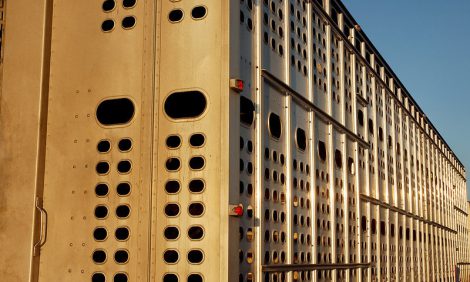



Too Much Beef And Not Enough
GLOBAL - A rift has opened up between prime cattle prices each side of the Atlantic.As Chicago futures broke records once again last week, Irish and UK beef producers continued suffering the lowest beef values for almost three years.
Strong domestic and export demand, up 4 per cent and 25 per cent on April 2013, has combined with a shortage of cattle to leave US feeder contracts above $200.
Meanwhile, UK auctioneers, after reporting record highs last year, are now seeing average prime cattle prices of 174.6 pence per kilo.
May ended with UK prices at 173.8 pence – 39 pence below last summer’s highs.
UK analysts say a rise in beef imports from Ireland, up 15 per cent in the first four months, has flooded the market with cheaper meat at a time of subdued consumer demand, leaving farmers short-changed.
This contrasts with the US market which has seen cattle numbers cut back in response to drought pressure, which peaked for many in 2012.
Irish production grew 11 per cent in the first quarter of 2014 and abattoirs reported a rise in carcase weights. US cattle are slightly lighter and a lot fewer in number, down to 10.6 million in major feedlots.
On top of overall imports to the UK lifting 11 per cent over the first four months, strong domestic production, up two per cent, is adding to the supply side and being undercut by Irish beef.
The price differential has been up to 75 pence per kilo this year and currently sees Irish beef at a 30 pence discount.
This is according to the English Beef and Lamb Executive’s senior analyst Debbie Butcher, who told TheBeefSite that, for the most part, Irish beef is behind the UK slump.
She said: “In simple supply and demand economics, supplies are considerably higher, and domestic product has not been competitive against imports - from Ireland for the most part - neither have our exports.
“Meanwhile’ on the demand side there have been issues as consumers struggle with higher retail prices on the back of increasing procurement costs in recent years.”
But while Irish imports have swelled to account for over 70 per cent of beef bought into the UK, Polish, German, Australian and Dutch beef imports have also lifted.
The beef price situation in Ireland is now at ‘crisis’ point, with farm groups pleading with the government to intervene with the markets.
At the heart of the lobbying, the Irish Cattle and Sheep Farmers Association claimed that suckler (cow/calf) farmers, along with lamb producers, would be ‘better off' on government welfare benefits than farming.
Michael Priestley
News Team - Editor
Mainly production and market stories on ruminants sector. Works closely with sustainability consultants at FAI Farms



